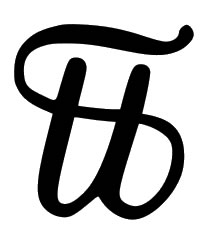What links the word bazooka with Roman trumpets and singing cows? Let’s find out in this blog post.
A bazooka was originally a primitive type of trombone with wide tubes. During World War II it came to refer to a shoulder-held rocket launcher used as an antitank weapon that was developed at the time, and which resembled the musical instrument. Bazooka has other meanings that we won’t go into here.
Bazooka comes from bazoo, an old word for a wind instrument (used in the USA and Canada) and a slang word for mouth (in the USA). That probably comes from the Dutch word bazuin [baːˈzœy̯n] (a medieval trumpet), from the Middle Dutch basune/basine (a kind of trumpet), from the Old French buisine (a type of trumpet used in battle), from the Latin būcina (bugle, curved war trumpet), from bōs/bovi- (cow, bull, steer, ox) and canō (I sing, recite, play, sound, blow [a trumpet]) [source].
The būcina was used in the Roman army to announce night watches, to give orders and to summon soldiers. Someone who played it was known as a buccinātor or būcinātor [source].
Words from the same roots include buccina (a curved brass instrument used by the Ancient Roman army), buisine (a medieval wind instrument with a very long, straight and slender body, usually made of metal) and posaune (an old word for a trombone) in English, Posaune (trombone) in German, buse (nozzle, pipe, conduit) in French, buzina (hunting horn, car horn, spokesperson) in Portuguese, and bocina (horn, loudspeaker, conch shell) in Spanish [source].
Incidentally, the word kazoo is possibly based on bazoo, or is of onomatopoeic origin [source]. While similar instruments using a membrane, such as the eunuch/onion flute, have existed since at least the 16th century, the kazoo was patented in 1883 by Warren Herbert Frost, an American inventor [source].





